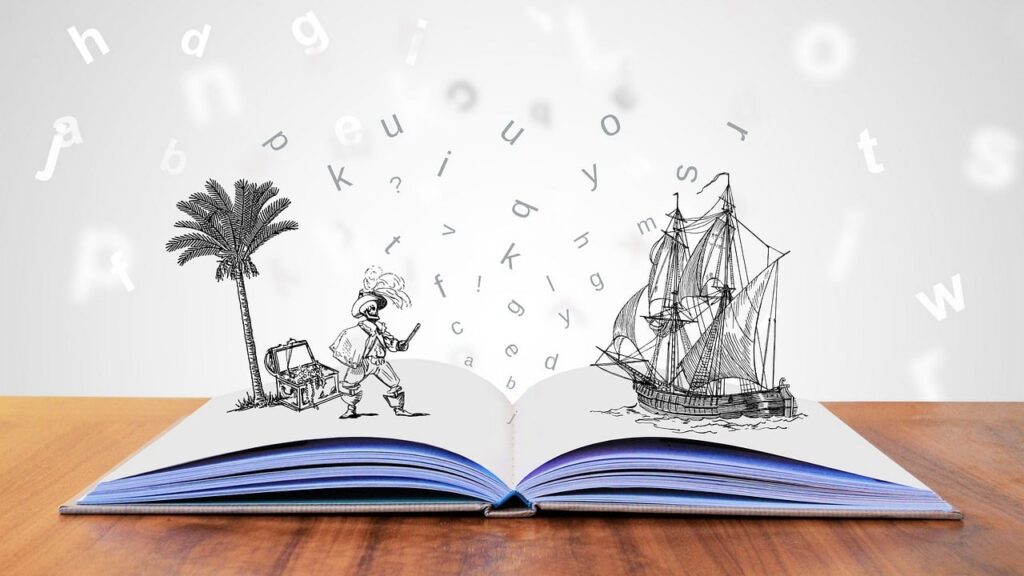The art of story-telling is as important for a brand as its other marketing and customer- reach initiatives. But what does it take to build an enchanting story around your brand or brand campaign? Read on to find out the nuances
By Sachin Bhandary
It must have been a month or so ago. I was watching Shark Tank India in passing. While I was buried in my emails, I heard someone describing the origins of the name – Darjeeling. I looked up and it was a young man, passionately talking about Darjeeling tea. How the lush greenery and the glorious weather impacts the tea. How the tea estates in Darjeeling have been struggling post pandemic.
I remember him explaining how each tea leaf weaves a tale and that is when I had an epiphany – it was this man who was narrating the real story and I had been truly immersed into it.
A little later into the episode I would find out that the person in question was Sparsh Agarwal, a founding member of Dorje Teas. The sharks were mesmerized by his stories just as much as I was and needless to say Dorje Teas went home with an investment.
So, what would you call this – Storytelling? And perhaps it was. But I’d like to call it Story-Selling.

The Art of Story-Selling
Story-selling isn’t a new term. It is an age old concept, utilized by some of the most innovative brands. Have you heard of the Significant Objects Experiment?
In 2009, journalists and bloggers, Rob Walker and Joshua Glenn, devised a ‘literary anthropological experiment’ to prove that “the effect of narrative on any given object’s subjective value can be measured objectively.”
As a part of the experiment, the duo roped in 100 creative writers who were tasked to write imaginative yet compelling backstories about 100 trinkets purchased from thrift stores and garage sales at a total of USD 129. These items were then sold on eBay. How much do you think these trinkets were sold for? A whopping USD 3,612.5.
These backstories helped create an emotional attachment and a level of premiumness around the objects.
Over the years, a number of Indian brands too have managed to add a layer of Story-Selling to their operations.
Let’s take PaperBoat for example. With the core theme of nostalgia, PaperBoat has time and again used story-selling. Around six years ago the brand released a story-based campaign – Rizwan.
Narrated by an elderly man, the video campaign was the story of Rizwan and his ‘Ammi’. From voice modulations to visual effects, Rizwan had all the elements of storytelling, making it one of their most memorable and successful campaigns. From their communication to their products – nostalgia driven stories are at the heart of everything that PaperBoat does. FabIndia is yet another brand that takes pride in their story which is closely associated with their roots.
All the communication designed by the brand focuses on their eco-friendly origins and environment first approach.
In spite of storytelling and story- selling having created some solid case studies, organizations often shy away from the usage of the concept.
Here are a few types of stories that your packaging and marketing may not be narrating but your staff and e-commerce descriptions can
1.Origin Story
A well-crafted origin story is a sales asset. Imagine knowing why a product was conceptualized. It builds an instant connection. Most of us know that a foreigner came to India and worked towards setting up FabIndia to protect and promote Indian heritage. This helps us want to own a piece of this fascinating history.
Crafting the origin story the right way takes time and effort, but is worth it. Training your staff to narrate it is also an effort, but the RoI can make it an obvious thing to do. That’s why founders like Vineeta Singh of Sugar cosmetics and Brian Chesky of Airbnb never get tired of narrating them.
2.Purpose Story
Why does your brand exist? Narrating this story is something that can help customers feel like they are a part of a mission with the brand. That’s why Apple’s ‘Think Different’ makes so much sense and so does Nike’s ‘Just Do It’.
But lesser known brands don’t have the luxury of the marketing budgets of these giants, that’s why your shop floor staff are your best advertisers and they need to be trained to narrate this story.
Apple’s ‘Think Different’ makes so much sense and so does Nike’s ‘Just Do It’. But lesser known brands don’t have the luxury of the marketing budgets of these giants, that’s why your shop floor staff are your best advertisers and they need to be trained to narrate this story.
3.Geographic Story
Have you ever wondered why so many brands and products are associated with cities or regions? Champagne from France, water and pink salt from the Himalayas, and so on. Or even the story that we began with. Why is Darjeeling Tea so famous?
Because an association with a place makes a certain promise of quality and also triggers the buyer’s visual imagination.
One of the most successful examples of Geographic Storytelling is Mapro. The brand is so strongly associated with the hill station of Mahabaleshwar and its strawberries that anywhere you go, people will buy Mapro with the hope of getting a taste of Mahabaleshwar in their lives.
Sales staff can use this association to be less salesy and more of storytellers. Retailers of sarees he always adopted this technique to good effect.
If I am being perfectly honest, geographic stories work for Personal Branding too. Go to Himachal Pradesh and every shopkeeper, child, and adult will narrate the story of the singer Mohit Chauhan and how Himachal is now known for its folk music.
4.Process Story
I recently listened to a podcast that featured Ather Energy’s CEO, Tarun Mehta. He spoke about how their approach to building a product is different and as opposed to building many products they are focused on doing many things for a single product. This not only helps their customers but also raises the bar for the ecosystem. Imagine, your sales staff talking about how differently a wine is matured as opposed to others. Or how a fabric is hand weaved and how the process helps create more comfortable and sustainable fabrics. In this form of storytelling, USP has an important role to play. What is it that your brand offers but others don’t? Over the last three years, we at The StoryCo have realized that story-telling can power every part of an organization. From leadership, strategy, management, marketing to communication.
Companies like Tata Motors, Saks Retail, Bestseller India and over 25 startups have reached their goals faster through the use of stories and story-telling techniques inculcated by The StoryCo.
The one place that stories provide the biggest boost is in sales and every retail and product organization must invest the time and effort to understand, institutionalize, and train their people to narrate better stories. Because stories sell, better than anything else.

Sachin Bhandary believes stories are superpowers. He runs a business story- telling coaching, consulting and training firm called The Story Co. He writes regularly on LinkedIn about how companies, startups and professionals can win with stories.


